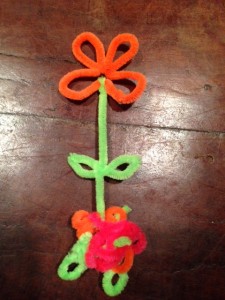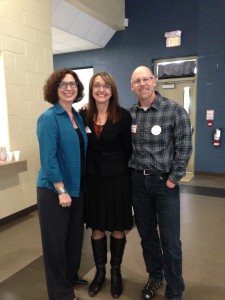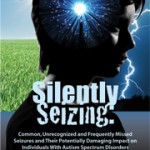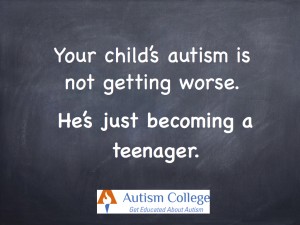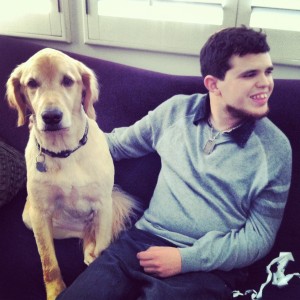“Tell him every day that you love him, and that you know he is smart.”
This is what Jeremy, my then 21-year-old son, responded to a mother asking for his advice. She wrote to Jeremy, telling him she had a non-verbal 12-year-old, and she was worried about what he was thinking and how he was feeling. She wanted to know what she could do for him until he was able to communicate his thoughts.
Reading Jeremy’s response brought back memories. Every night for many years, while tucking Jeremy into bed, I would tell him those two important facts. I never realized the positive impact repeating those words to him every night would have on his self-esteem. I just told him how I felt, just as I would tell his sister, Rebecca.
Jeremy is now 29, and communicates mainly by typing or points to letters on a letter board. Despite his challenges, Jeremy graduated 8 years ago from high school with a full academic diploma (watch his commencement speech). Jeremy’s success is no miracle; rather it is a story of hard work and commitment on the part of many people. The one who has worked the hardest is Jeremy. My goal for him was to reach his potential – whatever that was – and to be able to communicate with those around him. Since graduation, Jeremy has co-authored the book A Full Life with Autism (Macmillan) and is a gifted artist.
When Jeremy was little, we lived in France and in the UK. We had no early intervention; we had very little help or encouragement from the powers that be. Basically, I was on my own and I had to figure out how to help him. At first I just read to Jeremy and showed him pictures and tried whatever I could to reach him; then I tried different methods I heard about that made sense for him. But I always presumed competence and spoke to him as if he understood everything. I was convinced he did.
For the past 15 years Jeremy has been able to type and communicate about his life and what he experienced as a child, what autism felt like to him, and in what ways the different therapies helped (or didn’t). I have found out more about what was really helpful to him. Some of his comments are very specific, others are general such as this:
My mom saved me from a life of despair. Her attitude is the key to my success. She made me feel like I could be a success no matter my challenges. Basically, if it was not for my nice mom and great teachers, my life would not be worth living. They believed in me and that has made the biggest impact—more than the type of teaching methods used.
As parents and educators, we spend a lot of time talking about educational methods, but not much about attitude. Yet, when I interviewed people on different parts of the spectrum for my third book, Autism Life Skills, they, like Jeremy, often discussed the importance of their parents’ attitude to their success. Daniel Tammet, author of Born on a Blue Day, has this to say about his parents:
In spite of all my many problems, they loved me unconditionally and devoted themselves to helping me – little by little, day by day. They are my heroes.
The message is clear. Yes, we need the right educational environment for our children. And unfortunately, many children on the spectrum do not get much positive feedback at school or in the community on a regular basis. But if you are a parent, take heart in knowing that your child’s self-esteem benefits greatly from your loving and positive attitude. Knowing his parents are there for him, that they believe in him and in his ability to learn, can make a world of difference to a child’s state of mind.

